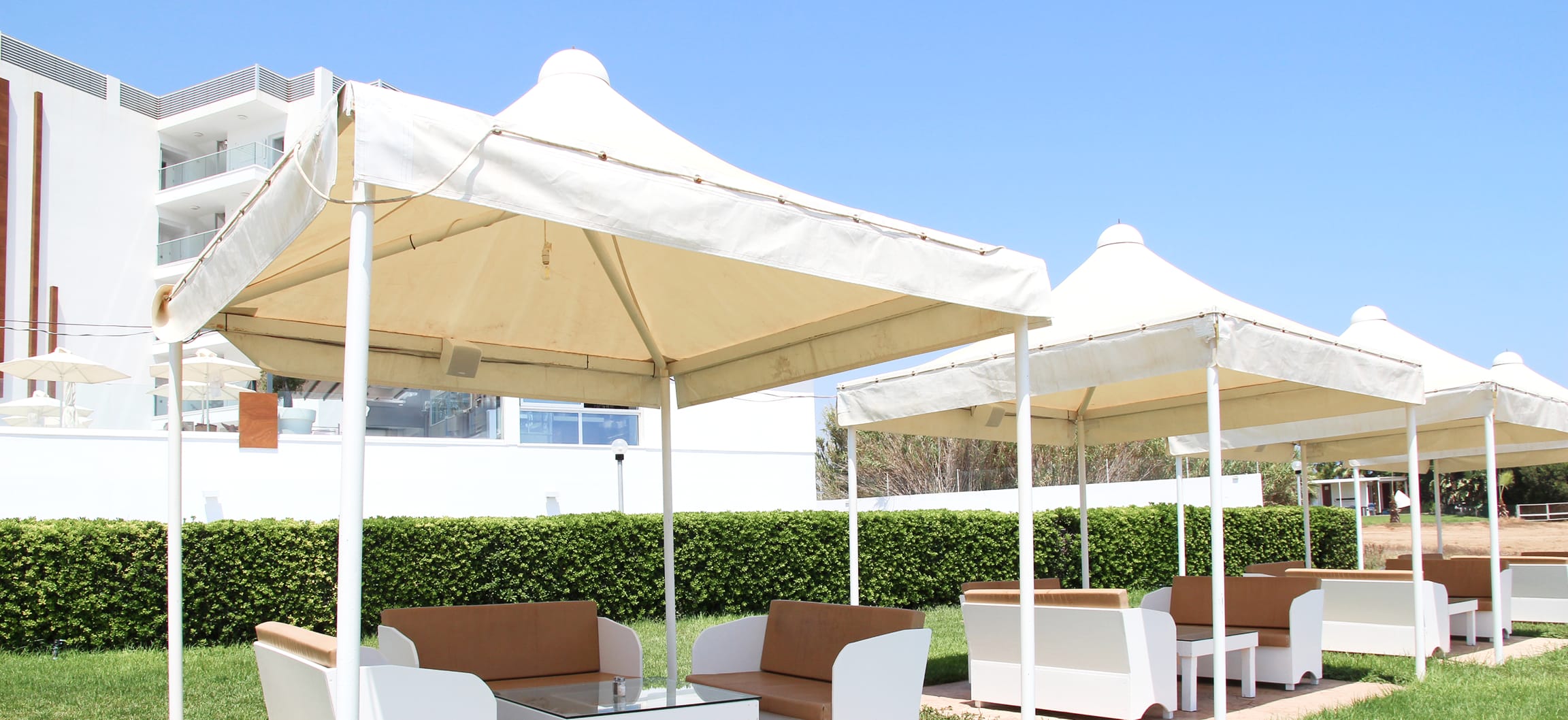
- Industries
Contact sales
Our software caters to all the verticles of equipment rental businesses. Have other plans? Share yours.
 Chat with us
Chat with us - Marketing Strategy
- SEO Guide
- Blog
Contact sales
Our software caters to all the verticles of equipment rental businesses. Have other plans? Share yours.
 Chat with us
Chat with usA complete guide on starting a tent rental business
Inside the article
Request a product demo
Get a demo and clarify your doubts about our software.
Tents are a must-have essential for outdoor events.
From setting the ambiance to providing shelter, their importance cannot be overstated.
As the demand for customized event solutions grows, the need for tent rentals will remain strong.
About seasonality? You can attract a steady stream of customers year-round by catering to various occasions such as weddings, corporate events, festivals, and private parties.
But before you dive in, you need the right guidance to get started.
Let me walk you through it.
Research the party rental market
Market research is crucial for any business, and your party rental business is no exception.
Combine “assessing market demand, identifying customer needs, and competitor analysis”—that’s market research for you.
Assessing the market demand
To determine if there is a demand for tent rentals in your area, use keyword research tools like Google Trends or other paid tools to check search demand.
Search for terms like: "tent rental in [your location]"
This will show how many people are actively searching for tent rental services in your area.
If the search volume is low, don’t be discouraged; try different search queries.
Also, use different approaches to assess demand:
- Checking local competitors – Look for tent rental businesses in your city.
- Conducting surveys – Ask people how they source tents for events. Do they rent or buy?
If you find consistent signs of demand, it's a great indication to move forward.
Know your customer preference
To win customers, you need to actually know who they are and what they want.
Identify the type of event they host, their affordability, and the add-ons they prefer.
Based on this, you can tailor your offerings and make it appealing to them.
Remember, a deep understanding of your customer's needs is required to tailor your offerings effectively.
Do competitor analysis
Identifying competitors is similar to assessing market demand, but slightly requires a different approach.
Perform a Google search for tent rental businesses to identify competitors online.
There are also other ways to find competitors:
- Ask friends, family, or neighbors if they know of local tent rental businesses.
- Check business directories like Yelp, Google My Business, and Facebook Marketplace.
Once you've identified competitors, analyze:
- Types of tents they provide to customers
- Check whether they are affordable or premium-priced
- Do they offer extra services like setup, decoration, or lighting?
- What’s their unique selling point
Choosing the right tents and equipment
Different tent types cater to various occasions, so selecting the right ones can help attract the right audience.
For instance, a collection of frame tents may appeal to those hosting formal events.
That’s why you have to assess the types of events happening in your region. Then, based on your specialization, decide which tents to invest in.
Types of tents to consider
- Pole tents – Perfect for weddings and upscale events, these tents feature center poles and elegant draping for a sophisticated look.
- Frame tents – Sturdy and versatile, these tents don’t require center poles, and offer an open layout that suits various event styles.
- Clear-span tents – Large and column-free, these tents are ideal for corporate events, exhibitions, and large gatherings.
- Pop-up tents – Lightweight and easy to set up, these are great for casual gatherings, fairs, and outdoor markets.
Additional equipment to consider
Beyond tents, offering essential event equipment can help you make extra money.
Consider adding:
- Tables and chairs – Essential for dining and seating arrangements.
- Lighting – String lights, chandeliers, or LED fixtures to create the perfect ambiance.
- Flooring – Wooden or carpeted floors for a polished and comfortable setup.
- Heating & cooling systems – Keep guests comfortable at seasonal events.
- Décor items – Drapes, centerpieces, and other decorative elements to elevate the event space.
Plan your business operations
Hire staff to assist you
Scaling from one tent to twenty tents is no easy feat. Turns out, you would be overwhelmed managing all the operations by yourself.
That’s why having a team always helps.
Get help from them with tasks, such as delivery, setup, and customer service.
This creates a space for growth as well as ensuring a seamless customer experience.
Use software to streamline operations
Still, relying on spreadsheets or manually tracking each booking?
It’s time to upgrade to tent rental software.
With the right software, you can:
- Automate bookings
- Manage inventory
- Handle invoicing & payments
- Enhance customer management
- Boost marketing efforts
Also, you have to know how the software typically works,
- Add your inventory
- Send quotations to customers
- Accept bookings
- Process orders, invoices, and payments
- Update inventory status in real-time
- Manage customer data efficiently
In a nutshell, software helps you manage your business operation and scale effortlessly.
Tailoring the pricing strategy
Pricing strategy is what gives an edge to your business, over competitors.
To refine your pricing strategy, start by analyzing your competitors' pricing. Are they charging too little or too much, or in between?
If they charge more, you can enter the market with competitive pricing.
Or if they offer affordable rates, you may need to reassess your pricing to remain attractive to potential customers.
Here’s a takeaway: Customers don’t simply walk into your business, accept your charges, rent your tent, and leave as satisfied customers.
What they actually do is they compare prices and their options, and make informed decisions.
Embrace marketing strategies
SEO is the process of optimizing your website to rank higher in search engine results.
Can’t grasp it? Let’s explain with an example. If a renter searches for “tent rental near me,” your website ranks at the top. That extra effect you put on optimizing your site is called SEO.
You typically are required to optimize your website for Google or other search engine algorithms.
SEO can’t be done in a day. It takes several months to see the result.
If you can’t be patient, SEO isn’t your piece of cake.
Consider Google ads (paid advertisement).
Key differences: SEO vs. Google Ads
- SEO: Free (organic), long-term results, requires consistent optimization.
- Google Ads: Paid, immediate traffic, but costs money per click or impression.
Local Optimization & Competitor Analysis
Beyond SEO and Google Ads, setting up a Google Business Profile can improve your visibility in local searches, such as Google Maps.
This is essential if you want to attract local customers.
Additionally, analyse your competitors' marketing strategies. That can open new doors. You might discover effective traditional strategies.
Scaling your tent rental business further
As soon as you start your tent rental business, you should explore ways to scale your business.
One way to scale is by maximizing your inventory.
Ask customers about their preferences for other tent types. They could be interested in different styles or sizes.
Tents are primarily used for events and parties. They may also need additional equipment, too, such as tables, chairs, lighting, or decor.
To further support scalability, invest in tent rental software to streamline operations, reach a wider audience, and free up time to focus on growth opportunities.
Request a product demo
Get a demo and clarify your doubts about our software.





